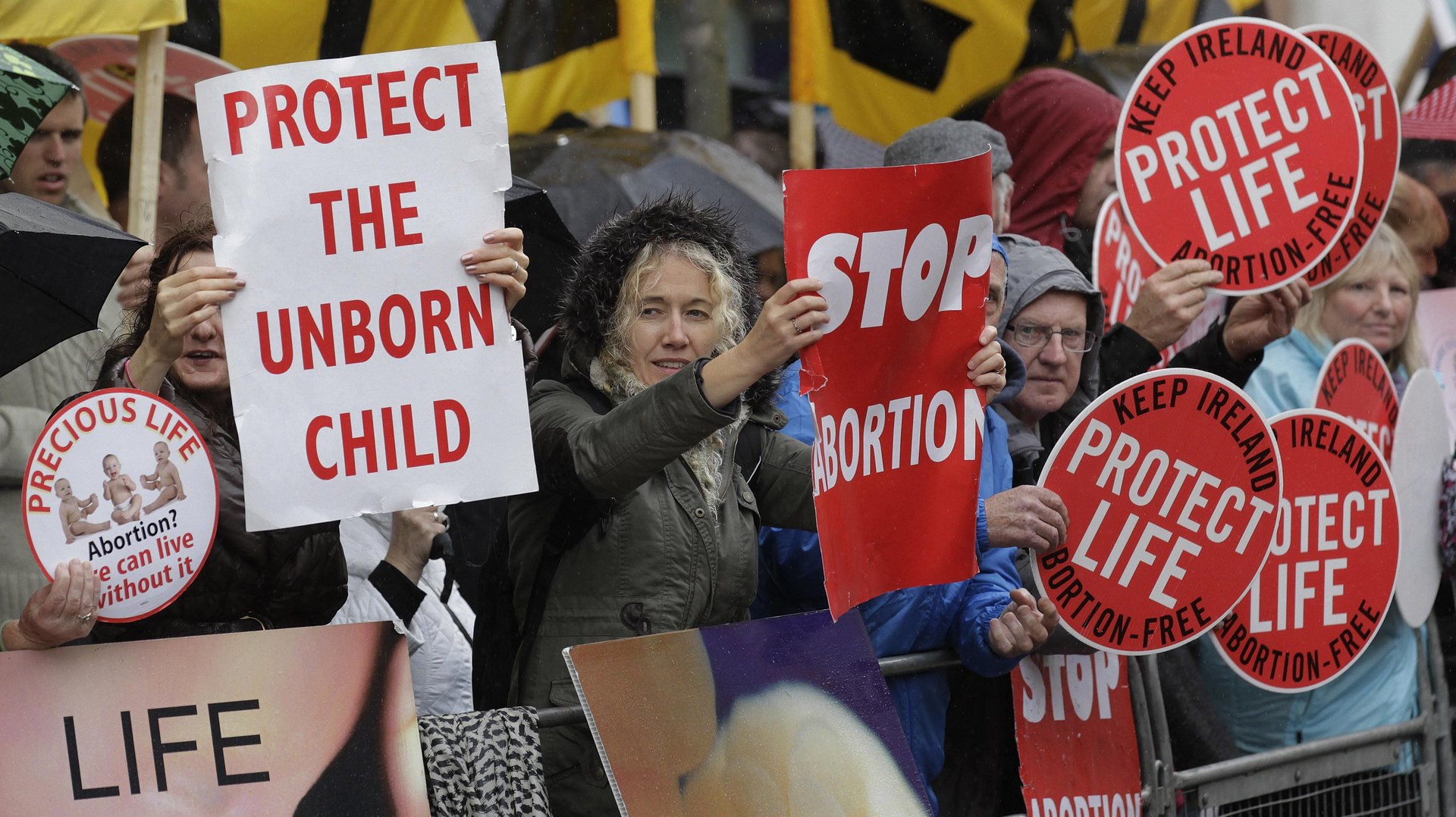The stark differences in how the Trump and Obama administrations talk about human rights
The US State Department published its first human-rights report under the Trump administration yesterday (April 20). The rights deemed worthy of promotion and protection by the State Department, however, appear trimmed when comparing them to the ones surveyed by the Obama administration.


The US State Department published its first human-rights report under the Trump administration yesterday (April 20). The rights deemed worthy of promotion and protection by the State Department, however, appear trimmed when comparing them to the ones surveyed by the Obama administration.
Women’s rights—in the form of reproductive rights—didn’t make the cut. And the nomenclature around Israel has changed.
Hillary Clinton, when she was secretary of state under Barack Obama, had added dedicated sections on reproductive rights in country reports, evaluating the state of access to abortion, contraception, and maternal health as well as other reproductive rights (against forced sterilizations, for instance). The first report to include the section was released in 2012, for the previous year.
But the latest report does away with the “reproductive rights” section, replacing it instead with one that focuses exclusively on “coercion in population control,” referring to the World Health Organization for data on maternal mortality and contraception. It skips assessments of availability of abortion or contraceptive measures. A side-by-side comparison with reports from previous years shows drastic change:
Take Ireland, for instance. This was the state of the country as assessed by the 2016 report, prepared by the Obama administration (bold ours):
Reproductive Rights: Couples and individuals have the right to decide the number, spacing, and timing of their children; manage their reproductive health; and have the information and means to do so, free from discrimination, coercion, and violence. The constitution gives equal status to the mother and the unborn child. In 2013 the country enacted the Protection of Life during Pregnancy Act to permit abortion in limited circumstances such as real and substantive risk to the life of the pregnant women. Some international and national organizations raised concerns about the lack of legal and medical clarity in implementing the act. Under the act procuring or assisting with an abortion in the country is a criminal offense with a maximum penalty of 14 years’ imprisonment, although the statute had not been used. The IHREC highlighted concerns that the law disproportionately penalizes poor women, female asylum seekers, and undocumented migrants because they were unable to travel abroad to obtain an abortion. The Irish Family Planning Association expressed concerns with barriers stemming from fear of prosecution, which could decrease access to emergency health care services to deal with complications arising from abortions.
In June the UN Human Rights Committee found that a woman who had to choose between carrying a fatally ill fetus to term or seeking an abortion abroad was subjected to discrimination and cruel, inhuman, or degrading treatment as a result of the country’s legal prohibitions on abortion.
And this is Ireland in 2017, according to the Trump administration:
Coercion in Population Control: There were no reports of coerced abortion, involuntary sterilization, or other coercive population control methods.
These changes are in line with the Trump administration’s policies limiting women’s rights (reproductive and otherwise) at home an in the areas reached by US aid budgets.
The report includes other important changes. In particular, it updated the label of the section about Israel and Palestine from “Israel and The Occupied Territories” to “Israel, Golan Heights, West Bank, and Gaza.”


Predictably, the report places less emphasis on the issues resulting from Israeli occupation, including no mentions of specific campaigns to silence or discredit Palestinians, which had instead been recorded in previous issues of the report.
Consequential edits occurred also in the western hemisphere. Since its inception in 1993, the report has acknowledged that “the most serious human-rights problem was widespread discrimination against Haitian migrants and their descendants.” This phrasing is absent in the 2017 report, and though it still mentions the issues faced by descendants of Haitians (230,000 have been rendered stateless), it does not clearly acknowledge that the cause of the problem is based in racial discrimination, as previous reports had done.